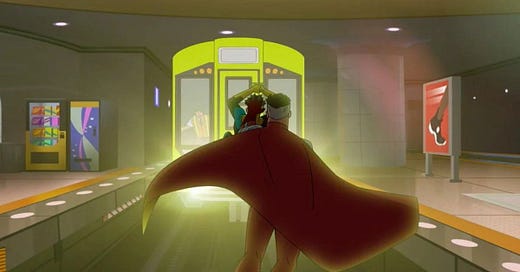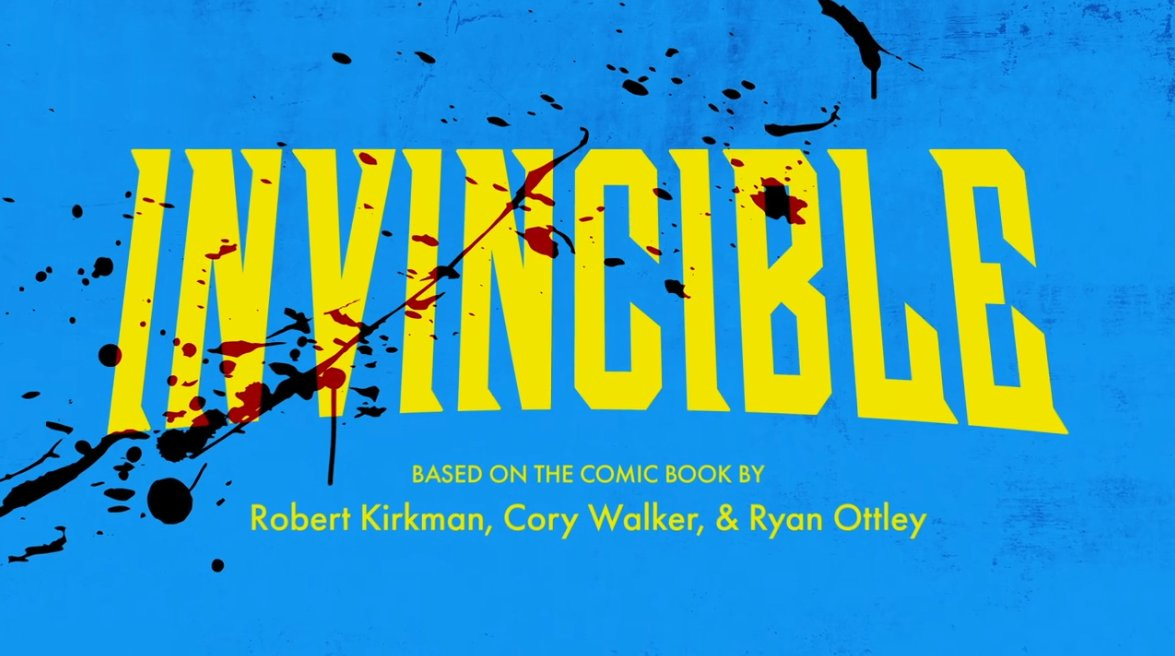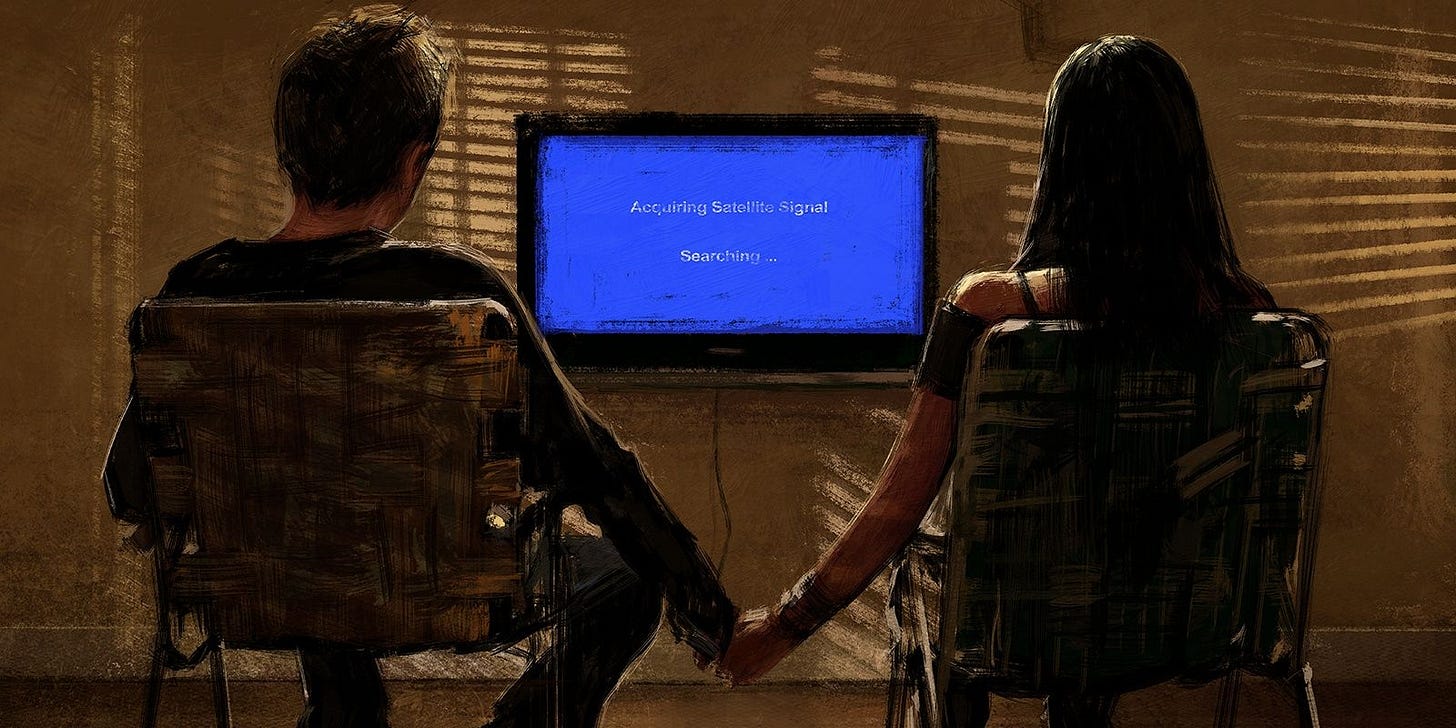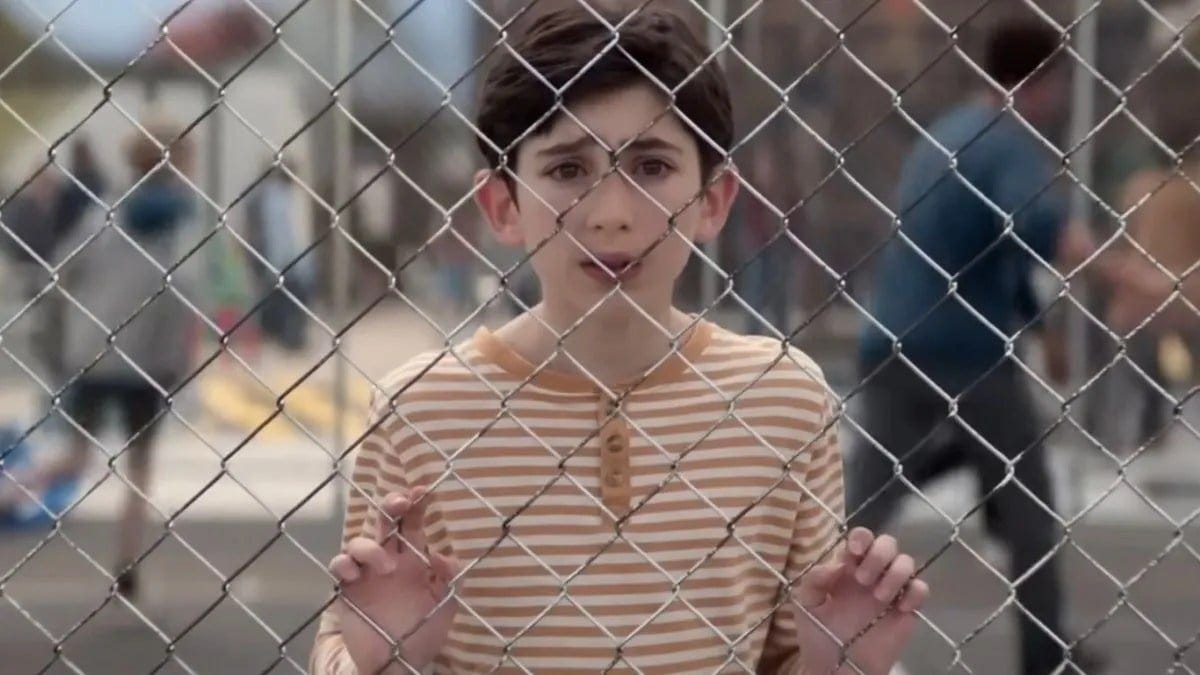Season's Greetings: How Great Shows Stay Great
And why the 2007 St. Louis Cardinals are the blueprint for structuring a season of television.
I’m halfway through the second season of a TV show I enjoy very much. It’s a subversive, exciting series based on what I can only assume are subversive, exciting comic books.
Season 1 of this show was tremendous. Despite airing in a time of extreme superhero fatigue, the writers managed to thwart expectations while simultaneously delivering everything you could ask for from a larger-than-life comic book story. The story begins as a fun villain-of-the-week romp but builds into a bloody, jaw-dropping climax in the final episode. It’s the kind of finale that you think about weeks, months, and even years after watching it.
Needless to say, I was very excited to start Season 2 when it dropped. I was sure that it would pick up with the same momentum that Season 1 ended with and rocket to new dramatic heights.
Unfortunately, I was wrong. I guess even the strongest shows aren’t
Despite its bombastic season 1 finale, Invincible’s second season starts uncharacteristically slowly, featuring a plot that tends to wander for a bit before regaining its footing and eventually reminding us what we loved about Season 1.
But why? A strong finale should naturally lead to a strong season opener. Right?
Right?
On August 4, 2007, the St. Louis Cardinals got mashed by the Washington Nationals. The final score was 12-1, where the single run scored by the Cardinals was thanks to a home run by second baseman Adam Kennedy.
The thing to note here isn’t the date, or the teams, or the score. It isn’t the home run. It isn’t even Adam Kennedy.
It’s the fact that Kennedy was batting ninth.
In an effort to understand Invincible’s situation, let’s think back to some other momentous episodes in TV history. How do other shows handle these key moments that upend the plot and redirect the course of the series?
I’ll steer mostly clear of spoilers here, other than including a quote from the episode to jog your memory if you’ve seen it. Still, read at your own risk.
Bojack Horseman
Season 3, Episode 11: “That’s Too Much, Man!”
“Sarah Lynn?”
I, unlike Bojack, remember that moment very clearly.
This is the episode that propelled Bojack Horseman from an admittedly-dark-but-still-pretty-standard adult comedy to something much deeper (and much darker) than we had anticipated.
It’s an inflection point in the series, and it clocks in as the 11th episode of a 12 episode season.
In other words: this isn’t the season finale. It’s the episode before the season finale.
Season 6, Episode 15: “The View From Halfway Down”
“Oh, Bojack, no. There is no other side. This is it.”
Arguably the hardest hitting episode of the entire show, “The View From Halfway Down” features a literal representation of everything Bojack has been battling for the duration of the series. It’s climactic, and tragic, and vulnerable, and sad, and profound.
And at episode 15 out of 16, it’s the penultimate episode of the show.
Back in 2007, when pitchers in the National League were still required to dig in to the batter’s box and hope for the best, they were generally the worst hitters on the team.
As a result, most managers plopped their pitchers at the back of the batting order (the 9th slot), where they would theoretically have the fewest at-bats out of everyone on the team.
By that same logic, you would usually find the best hitters towards the front of the line-up, since they’re more likely to put the ball in play and get on base.
So why was Adam Kennedy batting ninth, while the pitcher (Joel Piñeiro) took the eighth slot?
Hint: it’s not because Kennedy was a worse batter than Piñeiro.
No, it’s because Tony La Russa, the winningest manager in Cardinals history, who holds two World Series wins, three NL pennants, and the second-most victories of any manager in MLB history, saw things differently from everyone else.
Game of Thrones
Season 3, Episode 9: “The Rains of Castamere”
“The Lannisters send their regards.”
The Red Wedding is a crucial moment for many reasons that I have already discussed in this newsletter. The only additional thing I want to point out here is that, despite feeling like the season finale, this is actually only episode 9 (out of 10).
Breaking Bad
Season 2, Episode 12: “Phoenix”
“This is freedom.”
My first time watching Breaking Bad, I almost stopped after this episode. You see, I still thought that Walt was supposed to be the good guy, and the ending was almost impossible to reconcile with that view.
That’s because this is the moment when we are forced to confront Walt’s true nature. It’s when we realize that Walt is no longer a friendly neighborhood meth cook, and instead has grown into something far more sinister.
Oh, and it’s episode 12 out of 13.
La Russa’s argument is pretty straightforward: it doesn’t matter if the first few batters in the line-up consistently put the ball in play if there’s no one on base to score.
Put differently, if the pitcher, batting last, fans at three straight fastballs, then there is no one on base for the 1, 2, or 3 hitter to drive in.
So La Russa shook things up. He put the pitcher in the 8 spot, shifted a field player to 9th, and crossed his fingers.
3 Body Problem
Season 1, Episode 7: “Only Advance”
“Never play with God.”
While the big set piece happened in Episode 6 (see Mikey, above), “Only Advance” gives us a pleasing mix of resolutions and questions to ponder moving forward.
Ye Wenjie tells a critically unfunny joke, Will racks up a whole lot of airline miles, and Ser Davos finds a way to stay relevant for the next several hundred years.
And, as fits the pattern, it is Episode 7 of 8.
La Russa’s philosophy is logical and intriguing, albeit difficult to prove statistically. Perhaps his record speaks for itself, or his multiple World Series rings. Some research has been done on the matter, and the mathematical models suggest that there may be a marginal benefit to batting the pitcher 8th instead of 9th1, but the results seem largely inconclusive.
Regardless, La Russa became known for this tactic, and his triumphs inspired other managers to copy his approach (to varying degrees of success)2.
Invincible
Season 1, Episode 8: “Where I Really Come From”
Omni-Man reveals the full extent of his plan, gives Mark a crash course in ethics, and vanishes to another planet.
I’m understating things here: this is a big episode, and a perfect culmination of everything we’ve been building toward over the course of Season 1.
And then the season ends.
The finale of Invincible Season 1 forces Season 2 into a tricky spot: it has to 1) deal with the fallout of that mega-consequential episode and 2) get the new season’s plot off the ground.
In other words, the writers of Invincible batted their pitcher ninth. Now, when the top of the order comes around again, there’s no one on base to drive in.
This is in contrast to all of these examples we’ve revisited in this newsletter. Those series put their showstoppers in the metaphorical eight slot, which leaves room for one more episode that puts the ball in play and sets up the story to come.
Baseball and TV in one newsletter? What is this, a—
https://tht.fangraphs.com/is-larussa-right-to-bat-his-pitcher-in-the-eight-slot/
https://www.baseballprospectus.com/news/article/26045/baseball-therapy-hit-the-pitcher-eighth/










